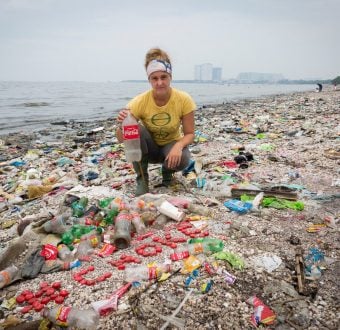“Despite being a leader in innovation
and design, Apple has made absolutely no improvements to its
policies or practices since the ranking was first released three
months ago,” said Rick Hind, Legislative Director of Greenpeace
USA’s Toxics campaign. “Apple’s bad green policy is not a wonderful
life for workers in the scrap yards of the developing world, and we
can’t imagine that Steve Jobs would want to be the Mr. Potter of
the high-tech industry this holiday season.”
Most companies now score above
average points on the ranking guide, with only five companies
failing to score even the average of five points. No company has
yet to receive better than a 7 out of 10 rating. The top-ranked
brands have committed to eliminate the use of the most hazardous
chemicals in their products and acknowledged that they bear
individual responsibility for financing the take-back and
responsible reuse or recycling of their own-brand discarded
products. Two manufacturers, Acer and Lenovo, have committed to
eliminate the use of the most hazardous chemicals from their
products. Nokia continues to hold the top spot in the ranking for
both its chemicals policy as well as disposal of electronic waste.
However, the company has yet to give clear timelines for phasing
out polyvinyl chloride (PVC).
Motorola has been the fastest mover
in the ranking guide. Although the company was ranked second worst
in the first version of the guide, released in September, it has
made strong commitments since then and has moved to fourth place.
Lenovo has also made strong policy commitments, to jump from the
bottom spot up to its current 8th place. Fujitsu-Siemens
and Acer made substantial progress and are now ranked
3rd and 7th respectively, moving up from
their earlier 10th and 12th positions.
LGE, Samsug and Sony have lost points
for failing to act on their commitments to individual producer
responsibility (IPR). Instead, the companies are supporting
regulation in the U.S. that would place the responsibility for
product recycling on consumers instead of producers.
In September 2006, HP was given a
‘penalty’ – one point was deducted from the company’s overall score
when Greenpeace scientists’ analysis of an HP laptop revealed the
presence of decaBDE, a type of brominated flame retardant that HP
claimed it no longer used. HP was quick to respond with an
investigation into the matter and has now released a statement on
its website that reaffirms its commitment not to use decaBDE. The
statement explains how decaBDE came to be found in the HP laptop
and details what action has been taken to avoid similar problems in
the future – at which point the penalty was lifted.
Other contacts: [email protected]
VVPR info: http://www.greenpeace.org
Exp. contact date: 2007-01-06 00:00:00

